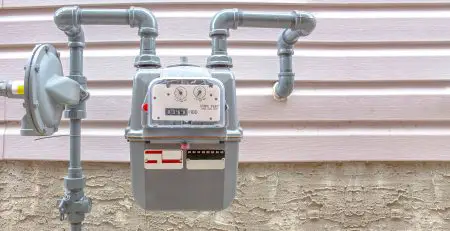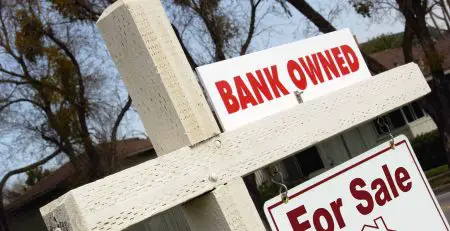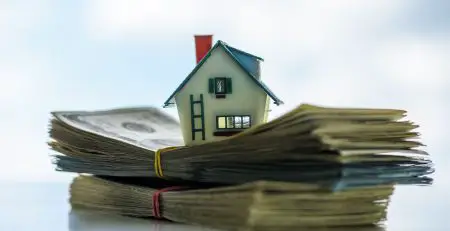Housing bills are one of the major expenses that people need to manage. A household should not pay more than 30% of their total income for housing costs if they seek affordable housing, according to the U.S. Department of Housing and Urban Development (HUD). Anything above 30% is considered unaffordable and can put a strain on a family’s finances. When households are financially strapped, they may find it difficult to pay for additional bills like food, healthcare, and other things. That is why it is crucial to locate a home that fits within your spending limits.
Some well-known housing assistance programs can help people achieve their dream of owning a home in addition to assisting with affordable housing needs. Fortunately, there are multiple housing support options to take into account. For those in need, these opportunities can make a significant difference. However, it is crucial to have a clear understanding of what affordable housing means for your current situation before digging into some other opportunities to think about.
What is Considered Affordable in Housing Costs?
Although it is recommended to keep housing costs no more than 30% of your gross income, it is crucial to remember that this amount can vary based on your income. For instance, someone with a gross monthly salary of $10,000 might consider $3,000 for housing costs per month as affordable. An individual who earns $1,000 per month, on the other hand, would find $300 per month in housing costs affordable.
You should take your income before taxes are deducted to determine what kind of housing would be affordable for you. After that, multiply that number by .30. If you want to find an affordable home, you should use the sum you get as your monthly housing budget.
Different Housing Assistance Opportunities
There are several popular housing support options to check out. These support options are available from a variety of organizations, including the federal government, charities, and others. When seeking to enhance your living condition, you should take into account a few opportunities, such as:
Housing Choice Voucher Program
This program is dedicated to delivering affordable housing to low-income households. This particular program is offered by the U.S. Department of Housing and Urban Development (HUD). However, the program is run by local public housing agencies (PHAs). For those who qualify, this support opportunity will offer housing choice vouchers. The vouchers can be used at places that accept them as a form of payment, including apartments, townhomes, single-family homes, and so on. However, in the private market, not all properties will take these vouchers. The ones that do accept these vouchers will have to fulfill the local PHA’s requirements, which include passing an inspection. The home must be adequate, sanitary, and secure.
The local PHA will pay the voucher amount directly to the landlord on the recipient’s behalf. After deducting the amount of the voucher, the recipients are then responsible for paying the remaining balance. Recipients may even have the option to purchase a modest home with PHA approval.
Who Is Eligible for This Program?
Depending on your local PHA, there may be specific eligibility requirements. Although the specifics will vary, local PHAs will often take into account four basic factors, including
- Income Status
- Citizenship Status
- History of Evictions
- Family Status
When it comes to qualifying, there are a few essential rules to remember. To put it another way, a family’s income generally cannot be higher than 50% of the area’s median income (AMI). You must prepare to provide documents with your application if you wish to apply for this program. For additional information, you should contact your local PHA.
Public Housing
HUD also offers public housing as a means of housing assistance. Although this is a HUD program, local housing agencies (HAs) are in charge of running it. This program offers participants a range of homes at reasonable prices, including apartments and single-family homes. In this scenario, your local HA would essentially serve as the landlord. In the background, HUD plans and develops the properties, while HAs are in charge of administering the housing.
This chance for assistance is not available to everyone; rather, it is intended to assist low-income individuals in need. Your local HA will take into account the following eligibility criteria:
- Income level
- Family size
- Citizenship status
- The references you provide
Total Tenant Payment (TTP) is another name for the amount of rent you will be required to pay. Your family’s annual gross income is taken into account while calculating this amount. Get in touch with your local HA if you wish to apply for this program. You must be ready to submit supporting documents with your application. You can also get in touch with your local HUD Field Office if you have trouble getting through to your local HA.
Supportive Housing
There are several types of supportive housing that may be able to assist those in need. Some supportive housing opportunities include:
- Transitional Shelters
- Emergency Shelters
- Permanent Supportive Housing (PSH)
- Rapid Re-Housing (RRH).
Transitional Shelters
Transitional shelters are one type of supportive housing. Depending on the shelter, different services may be offered and different lengths of stay are allowed. The typical length of stay in these shelters is between six and 24 months. Some of the services available to people focus on their health, job, and other issues. For those who are experiencing homelessness, this is a fantastic option.
Emergency Shelters
Unfortunate circumstances can force families to deal with a situation where they might need immediate shelter. In these situations, emergency shelters are helpful. In order to provide families with temporary stability, emergency shelters are intended to be their first place to call. The length of time a person can stay in these shelters varies from one place to another. To find out what is available, you should look into your local options. These shelters can offer support in the short term while assisting folks to find a long-term housing solution.
Permanent Supportive Housing (PSH)
It should not be a surprise that PSH is a supportive housing option. The name says it all! This kind of housing aims to help those who are homeless on a long-term basis. A person can meet HUD’s criteria for chronic homelessness if they reside in:
- Emergency Shelters for at least 12 months, or at least four times in a three-year period, for a total of 12 months.
- Places where people cannot live for a minimum of 12 months, or a minimum of four times over the course of three years, which adds up to 12 months.
- Safe havens for at least 12 months, or at least four times in a period of three years that add up to 12 months.
Many of those who get PSH services are either physically or mentally disabled. This is the reason why long-term support is so crucial. It offers support services in addition to housing stability and safety. It is important to remember that this is a unique kind of housing first solution. These types of housing prioritize individual recovery while assisting people in becoming self-sufficient and moving into permanent housing as soon as possible.
Rapid Re-Housing (RRH)
Rapid Re-Housing is a different option for a “housing first solution.” It seeks to help those who do not typically deal with homelessness, unlike PSH. Non-chronic homelessness is when people do not deal with it frequently. In an effort to immediately relieve people from their homelessness, this form of housing solution can offer them inexpensive rent. Additionally, it includes short-term services for community assistance.
Chenoa Fund
The Chenoa Fund is a nationwide program that offers help with down payments. In fact, it is not a government program. Instead, the CBC Mortgage Agency offers it. This agency is a federally chartered government organization. This organization’s objective is to increase homeownership’s affordability and viability, with a focus on helping people who have financial or credit difficulties. Despite the fact that these groups are given special attention, it is not only limited to them! Actually, everyone who satisfies the minimal criteria for this support opportunity may be eligible.
Who Is Eligible for the Chenoa Fund?
Depending on the type of home loan the buyer has, there are different minimum requirements for this program. People who want to apply for the Chenoa Fund must fulfill the following minimal conditions for an FHA home loan:
- Have a 620 FICO credit score or higher.
- Have a debt-to-income ratio that is no more than 45%.
On the other hand, if you have a conventional home loan and wish to be eligible for the Chenoa Fund, you must meet the following minimal standards:
- Have a 640 FICO credit score at the very least.
- Maintain a debt-to-income ratio of no more than 50%.
- Your first mortgage should not have an interest rate of more than 2%.
- Have a 10-year term on your second mortgage.
How Much Assistance Can I Get?
The maximum amount of down payment assistance that this program can offer is up to 3.5 percent of the price of the home that a person is trying to buy. If you are eligible for assistance, it will take the form of forgivable or repayable second mortgage loan options.
FHA Home Loans
There are many different loans to take into account when purchasing a property. The Federal Housing Administration’s (FHA) insured loans are one of those opportunities. Although the FHA is the organization responsible for ensuring these loans, banks or other authorized lenders are the ones that actually offer them. Due to the low down payment requirements and easier qualification standards compared to a conventional loan, people might benefit from this loan option. If a person meets the eligibility requirements, they might be able to provide down payments as low as 3.5 percent. For instance, a person with a credit score of at least 580 will be eligible for a down payment of 3.5 percent.
That being said, those with credit scores between 500 and 579 might still be eligible for these loans with a 10% down payment. For first-time homebuyers, FHA is perfect. Despite being recognized for securing conventional mortgages, the FHA also offers additional loan types, including:
- 203(k) Home Improvement Loans
- Energy Efficient Mortgages
- Home Equity Conversion Mortgages
- Section 245(a) Loans
203(k) Home Improvement Loans
This particular home loan option includes additional funding. The extra money can be used to pay for home maintenance, renovation, and repair costs.
Energy Efficient Mortgages
Similar to 203(k) loans, there are additional funds that come along with this option. The additional money provided here may be used to pay for energy-efficient home improvements that can reduce utility expenses.
Home Equity Conversion Mortgages
A reverse mortgage is what this is. Senior homeowners over the age of 62 can use this type of home loan to tap into the equity in their property and borrow money from it. They have the option of receiving these funds in monthly installments, as a credit line, or a combination of both.
Section 245(a) Loans
People whose wages will later improve should choose a home loan with low initial monthly payments like this one. Nevertheless, this means that the payments will also increase gradually. The advantage is that it reduces the total loan period.
Bottom Line
For those who need some support, especially with housing costs, there are a lot of housing assistance options available. More assistance is available than many people may realize, whether they are looking for cheap renting solutions or need assistance purchasing a property. There are multiple assistance programs to help like Housing Choice Voucher Program, Public Housing, Supportive Housing, Chenoa Fund, and FHA Home Loans.
Besides the opportunities listed above, you can review other options as well. By visiting Benefits.gov, you can check out several opportunities online. Users can view more than 1,000 different government benefits on this website. There might be more resources available to you that could improve your current circumstances. If you could not find what you are looking for online, you can also contact your local PHA or State Office.











